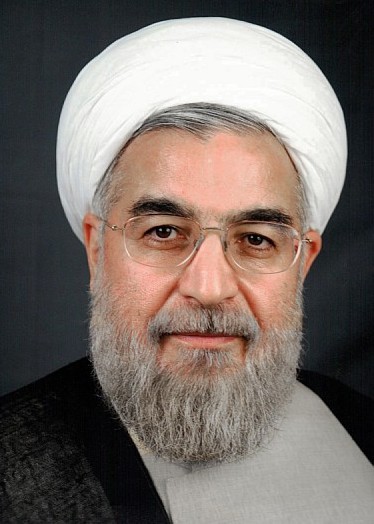 |
| Iranian President Hassan Rouhani Source: Wikipedia |
Under the Obama Administration, the goal of spreading democracy has taken a partial backseat to the more expansive mandate of humanitarian intervention, but democracy spreading is still there. Thus, when former Secretary of State Hillary Clinton makes the unwise choice to defend the disastrous Libyan war, she often celebrates the fact that they held democratic elections afterwards, as if that were an end in itself.
Of course, it is worth debating whether the US really should have spreading democracy as a core mission at all.* But if we accept that premise for the sake of argument, we arrive at an equally important question. If the US does want to spread democracy and expand freedoms around the world, what is the most effective method to do so?
Recent history is quite clear that the answer is not military intervention. The countries that have been most heavily targeted in the so-called War on Terror can be described as many things; functioning liberal democracy is not one of them.
But on the contrary, there are new signs that the alternative approach of peace and trade may be quite effective. The Iran nuclear deal will likely go down as Obama's only significant positive achievement in the realm of foreign policy. Iran's enrichment capabilities were diminished, around-the-clock inspections were put in place, and most important of all, broad sanctions against Iran were lifted in exchange. For the first time in many years, Iran is able to participate in the global markets largely unimpeded. Many of the Iranian people appear to be feeling more optimistic about their future economic prospects.
The moderate President Rouhani successfully campaigned for election back in 2013 on the promise of ending the standoff with the West and bringing an end to the economic sanctions. He made good on that promise. And in the most recent national elections, the Iranian voters showed their broad approval of these efforts. Moderate and Reformist candidates won a lopsided victory in the elections, unseating many of the hard-liners that had attempted to block progress towards a nuclear agreement with the West.
These latest results appear to pave the way for a more rapid normalization of relations with the West and potentially more domestic reforms in the country as well. And all of this now seems possible even though the Iranian political system that governed these elections is far from free or open. As commentator Muhammad Sahimi recently explained, political candidates are subject to a formal approval process by existing political bodies before they are allowed to run, and many candidates are denied. In spite of these limitations, the forces for moderation appear to have made significant gains.
It's difficult to predict exactly how this will play out over the remainder of Rouhani's term. But the initial results offer strong anecdotal evidence in favor of diplomacy and trade as the most effective tools in the foreign policy arsenal. The reason why should be intuitive. It appears that countries, like people, are persuaded more readily by positive rewards than negative coercion. And it's always a great thing when common sense gets another data point in its favor.
*I, for one, would prefer a mission more akin to the Hippocratic Oath: First do no harm.
No comments:
Post a Comment